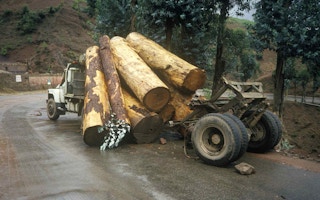After taking a beating from decades of logging, China’s forests have begun to regenerate, but the problem of deforestation may have shifted to other nations exporting wood to the world’s most populous country, researchers said on Friday.
Between 2000 and 2010, about 1.2 per cent of China’s territory - an area larger than Portugal - experienced a significant net gain in tree cover, said the study from researchers at Michigan State University in the United States.
Instead of cutting down its own trees to make products for exports, China has become one of the world’s leading timber importers, potentially increasing deforestation overseas, the study said.
“It is encouraging that China’s forests have been recovering in the midst of its daunting environmental challenges,” said Jianguo Liu, a professor of sustainability and the study’s co-author.
Protecting forests reduces global warming as trees suck climate-changing carbon dioxide gas out of the atmosphere. Healthy forests also protect water and soil resources, so their fate in China, a nation of 1.3 billion people has global ramifications.
Based on studying NASA images and official data, researchers concluded that a government programme to regenerate forests by banning logging in some areas and cracking down on illegal timber harvesting is working.
About 1.6 per cent of China’s territory or nearly 61,000 square miles saw a significant increase in forest cover, while 14,400 square miles experienced tree loss, said the study published in the journal “Science Advances”.
Researchers cited Madagascar, Vietnam and Indonesia as countries that are felling forests to fulfill Chinese demand, potentially increasing climate change and hurting biodiversity in the process.
“The exporting countries are suffering from deforestation,” Liu wrote in an email to the Thomson Reuters Foundation.
“A large proportion of the wood products imported to China have been used to make furniture for developed countries such as the USA and those in Europe,” Liu wrote.
Scientists need to do further studies to determine how shifting patterns of deforestation are impacting the land rights of communities who live in the world’s forests, Liu said.










